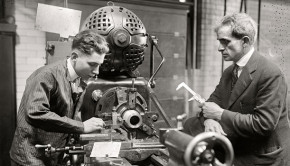No cure for love – or is there?
“There is no cure, there is no cure, there is no cure for love.” These words belong to the legendary Leonard Cohen and have so aptly described the lamentation that we have all probably felt at least once in our lifetime. I believe we’ve all wished for that cure during the darkest hours of heartache and sorrow, which are – as unfortunate as it is – the other side of that blissful state of being in love.
But now I read that modern science is indeed catching up to the disease of lovesickness and that a cure is in the making! Indeed, there seems to be a phenomenon called “anti-love biotechnology”, which means that somewhere in the world there are scientists in white lab coats hunching over their microscopes trying to figure out what precisely is that weird sickness that sometimes seizes us – and indeed, sometimes against our own better judgement. They’ve figured it out: love has the same effect to our brain that drugs have – therefore, love is a drug. Believe it or not, neuro-ethicist Brian D. Earp has even defined love. That’s right! According to him love is “a phenomenon grounded in ancient neurochemical systems that evolved for our ancestors’ reproductive needs”. Not so very romantic, is it?
Mr Earp says that studies show extensive parallels between the ways certain addictive drugs effect the brain and the way our brain behaves when we’re in love. Apparently both “activate the brain’s reward system” making us feeling overwhelmed, forcing us to forget everything else and making us craving for it when in the state of withdrawal. In fact, one scientific study even found proof that the early stages of love are closely comparable to obsessive-compulsive disorder.
Of course, we all know that fire can be fought with fire. There are specific drugs and chemicals that make withdrawal from drug addiction easy – not everyone is able to go cold turkey. So scientists have also devised something, which – not unlike methadone to heroin – works as an anti-love drug. The concept behind it is treating love much the same way that we would treat anxiety, addiction or depression. Apparently – anti-love drugs are already in use in some countries – albeit unofficially. For example, there are drugs that block the oxytocin production (the so-called “love hormone”) thus severing the ability to form long-lasting attachments. Of course, it goes without saying that scientists cannot recommend such an action as a cure for the broken-hearted for oxytocin also caters for other relationships in our life, not just romantic ones. There are other, similar drugs that stop or block the dread and depression that overcomes us after horrible break-ups and it’s easy to understand why the scientists admit that there would be a real market for them too.
Isn’t this a horribly slippery slope though, this euthanasia of love? While there are situations where an anti-love drug could really possibly save someone’s life or rescue someone from a bad relationship, surely there are also countless ways to abuse it? Brian D. Earp fully agrees: nobody should be forced drug-based treatment against his or her own will. And while he agrees that there are situations where these pills would certainly be recommended, in most cases there is no need for medical intervention. “If I get out of a bad relationship, maybe I need to reflect on what happened, not pop a pill so I can rush into a new relationship,” he says and recommends few other “modern tricks” to get over your broken heart – for example, creating physical distance between you and stopping looking at his or her Facebook profile.
All this brings in mind the wonderful movie of “Eternal Sunshine of the Spotless Mind” – a title borrowed from Alexander Pope’s great poetry –, which so clearly showed us the dilemma and consequences of being broken-hearted and deciding to find a cure for it. We remember how that ended…
So, this problem has been around as long as mankind. Leonard Cohen might have mused about finding a cure for love 20 years ago, Alexander Pope did it 300 years ago, Dante Alighieri 700 years ago and so on and so forth. What has come out of heartache, are numerous great works of art, which would probably never have been born had there been a “cure for love”.
“How happy is the blameless vestal’s lot!
The world forgetting, by the world forgot.
Eternal sunshine of the spotless mind!
Each pray’r accepted, and each wish resign’d”
~ Alexander Pope, Eloisa to Abelard


















